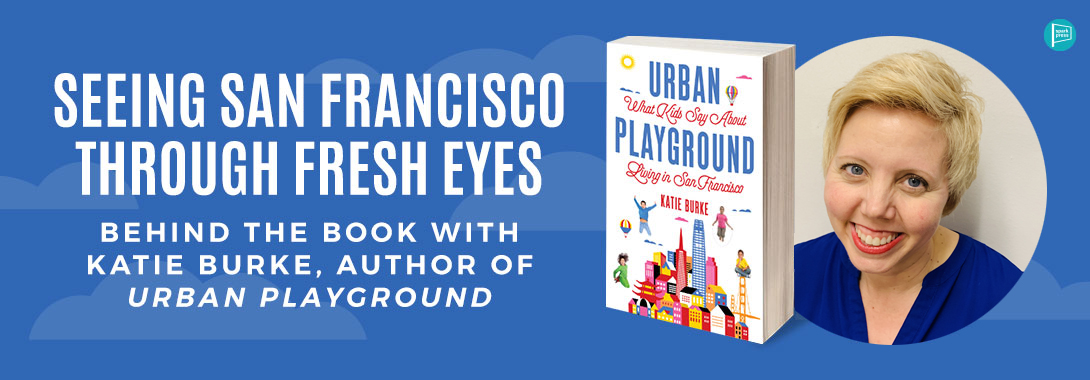My Own Childhood Association with San Francisco
When I was a freshly minted ten-year-old, my Aunt Nancy took me to dinner to celebrate my birthday in Phoenix, the city where we both lived then.
“When I grow up, I’m going to live in San Francisco,” I declared.
“Oh, that’s wonderful!” my aunt replied, adding that San Francisco was a perfect city for me. She could imagine me liking its culture, climate, and progressive political leanings.
That was good enough for me, a kid who had wished to live in San Francisco for who knows how long, only to be met with inquisitive stares and dismissive pats on the head from the people closest to me . . . all of whom knew I had never set foot in the city. My mom had warned that I couldn’t move to San Francisco because you needed a car to live there, a perceived flaw in the plan that I would presumably have resolved by becoming an adult and owning one.
I don’t know why I harbored a childhood desire to live in a city I had never experienced firsthand. Whatever my thinking, my mom’s warning did not deter me. Good thing, since the bit about needing a car in the city was not accurate then, nor when I moved to the city in 1999—and with the advent of Lyft and Uber, it is certainly not true now.
The City Through San Francisco Kids’ Eyes
Over two decades into my life in San Francisco, and thirty-six years after that fateful dinner with my aunt, my perspective on the city has shifted many times. The San Francisco I moved to at age twenty-five is almost unrecognizable to me, and a total fiction to the fifty five-to-nine-year-old San Franciscans I profiled for Urban Playground.
When I began interviewing these kids, I wanted to know what life was like for them, growing up in our alternately beautiful and gritty urban center, still teeming with the culture Aunt Nancy told me would draw me here.
I was a little surprised when one child told me one of her favorite activities in the city was going to Target. After our interview, her mom assured me that the family spends weekends visiting San Francisco’s many museums, parks, libraries, and the like.
Many of my interviewees told me they do not like San Francisco, and plan to move someplace quieter and less dirty as adults. Several mentioned feeling scared of the many homeless people they see on our streets. Others said they plan to live in the same San Francisco neighborhoods where they grew up, never moving out of their parents’ homes in some cases.
On reflection, the child’s Target appreciation should not have taken me aback. I of all people, profound admirer of San Francisco before I’d ever set foot in the city, should know there’s no accounting for kids’ fancies. Children like what they like, and my most salient discovery in talking to so many kids growing up in San Francisco is that children differ so greatly from each other.
One child, who works as a cashier at a San Francisco farmers market on weekends just because he wants to, told me he finds the city “super expensive,” so he usually makes his life purchases from Amazon rather than in brick and mortar stores, since Amazon “makes everything cheap.”
Just as no parent can expect their children to have the same aptitudes and career paths as each other, none of us living among San Francisco kids should believe they experience our city the same way. As my interview process unfolded, I felt grateful to meet children with so many different points of view on the city I fell in love with upon arrival—and, sight unseen, fifteen years before.
San Francisco For Me Now
As for my present take on the city, I share the dismay voiced in several of my interviews. The city does seem dirtier than ever, and while I believe our municipal government officials are trying to implement measures to resolve homelessness that are both humane and public safety-conscious, I feel sad at the state our homeless residents find themselves in, and the effect it has on the rest of us who live here.
But I love this city. For all its culture, political engagement, and socially conscious directives, I feel proud to live here and happy most of the time. My ten-year-old self was right, as are the five-to-nine-year-olds who spoke to me about their lives here. We all hold a piece of the truth, and I feel honored that I had the opportunity to hear theirs.
Bio:
Katie Burke’s work includes Noe Kids, a monthly column for The Noe Valley Voice, featuring kids ages four to thirteen who live in Noe Valley. Katie has taught creative writing to children and adults in Kenya, South Africa, and San Francisco. She travels regularly to New Orleans, and her writing expresses her appreciation for San Francisco’s and New Orleans’ eccentric characters.
Also a family law attorney, Katie writes judicial and attorney profiles for San Francisco Attorney Magazine and facilitates journalism workshops through the Society of Professional Journalists at San Quentin State Prison. Her other publications include HarperCollins, the L.A. Times, and KQED Perspectives.


Leave A Comment